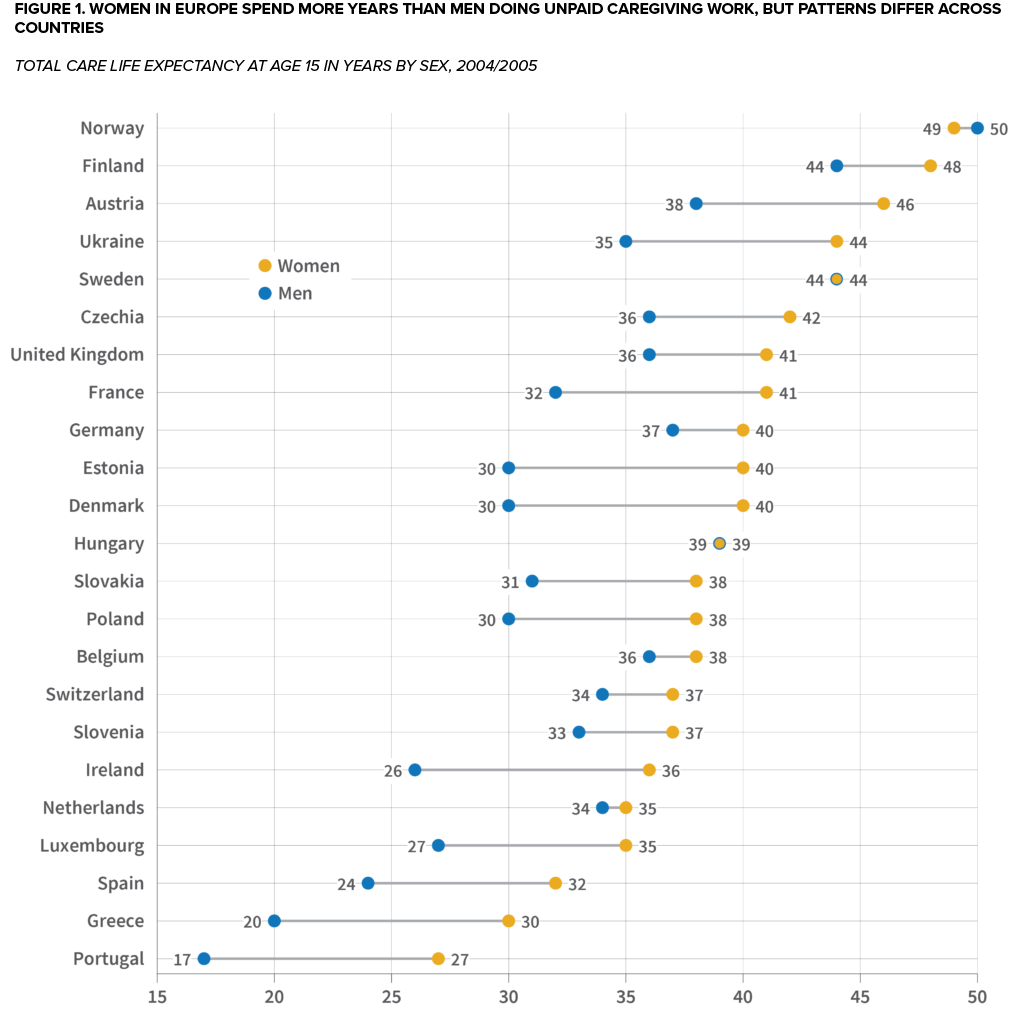Finding
Europe is the oldest region in the world, with almost one in five people ages 65 and older. Many European countries are concerned about the implications of this population aging, including a growing demand for old-age support and a shrinking pool of working-age people to provide it. As the urgency of the care-work crunch becomes more apparent, new research funded by the National Institute on Aging reveals that women and people without children take on a disproportionate share of this unpaid care work across the continent.
Europeans can expect to spend over half of their lives after age 15 providing unpaid family care work, including taking care of children and older relatives. However, women in Europe spend six more years doing unpaid caregiving work than European men, according to a study by Ariane Ophir, now at the Centre d’Estudis Demogràfics, and Jessica Polos, now at DePaul University.
Ophir and Polos estimated care life expectancy, or the number of years after age 15 people can expect to spend providing informal care, by sex in 23 European countries. Data on unpaid caregiving came from the European Social Survey, and life expectancy data came from the Human Mortality Database’s abridged period life tables.

Source: Ariane Ophir and Jessica Polos, “Care Life Expectancy: Gender and Unpaid Work in the Context of Population Aging,” Population Research and Policy Review 41, no. 1 (2022): 197-227
Toshiko Kaneda (September 2023). Off the Clock: Europeans Can Expect to Spend Over Half of Their Lives After Age 15 Providing Unpaid Care Work. Population Reference Bureau.
